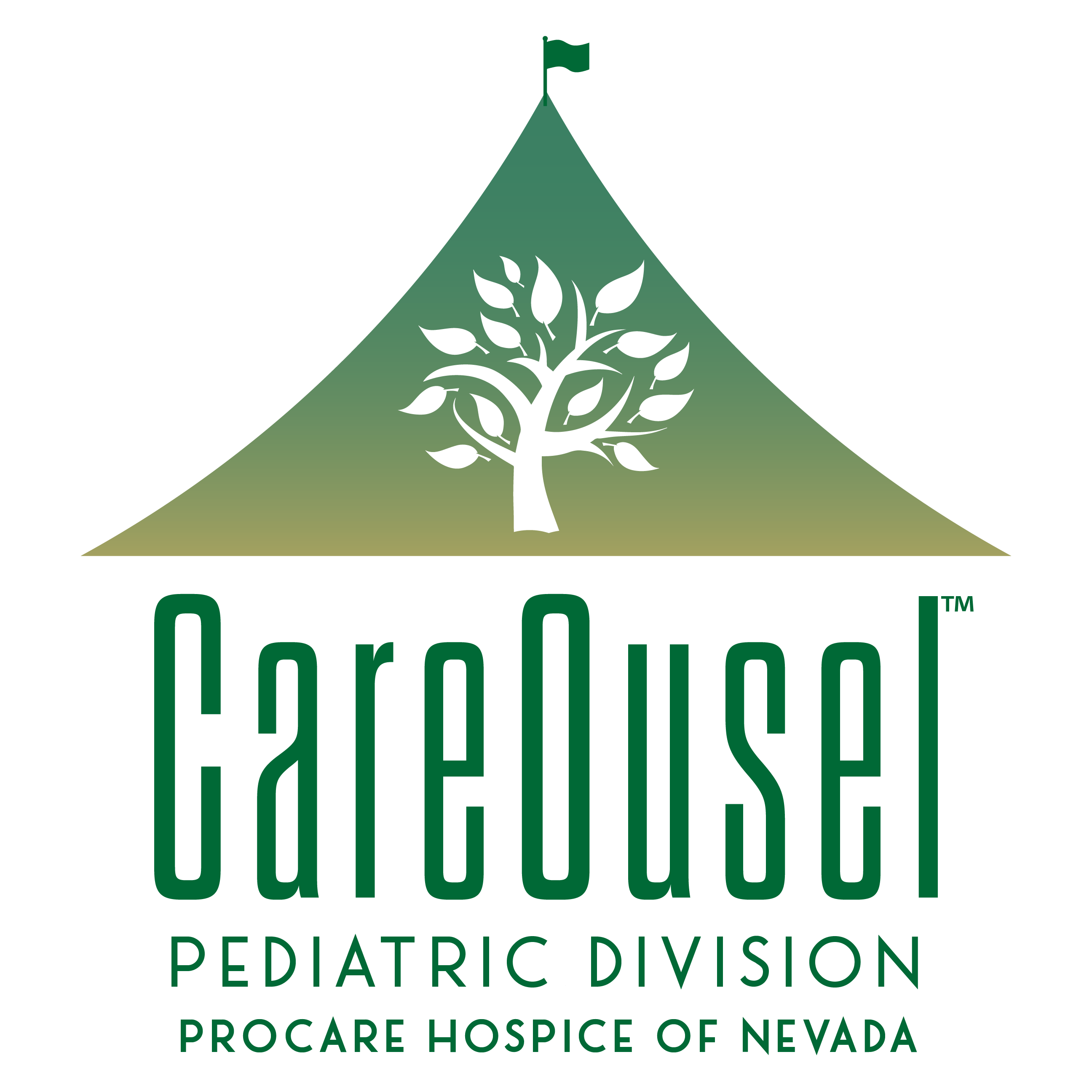Hospice care is a critical yet often misunderstood aspect of healthcare. It is designed to provide comfort and support to patients and families who reside in Las Vegas, during their most vulnerable times. Despite its importance, many myths and misconceptions surround hospice care, leading to unnecessary fear and hesitation.
Table of Contents:
- Myth 1: Hospice Care Means Giving Up Hope
- Myth 2: Hospice Care Hastens Death
- Myth 3: Hospice is Only for Cancer Patients
- Myth 4: Hospice Care is Only for the Last Few Days of Life
- Myth 5: Hospice Care is Expensive
- Myth 6: Hospice Care is Only Provided at Home
- Myth 7: Hospice Care is Depressing
- ProCare Hospice of Nevada: Your Partner in Care
- FAQs
Myth 1: Hospice Care Means Giving Up Hope
Many people believe that choosing hospice care in Las Vegas equates to giving up hope. This misconception arises from the idea that hospice care is only for those who have accepted that there is no possibility of recovery. However, hope can take many forms. In hospice care, hope is redefined to focus on the quality of life rather than the length of life. It shifts towards hoping for comfort, dignity, and meaningful moments with loved ones.
How Hospice Care Actually Supports Quality of Life
Hospice care is designed to enhance the quality of life for patients facing terminal illnesses. It provides comprehensive support that addresses physical, emotional, and spiritual needs. By managing symptoms and reducing pain, hospice care enables patients to spend their remaining time in comfort and peace. This support extends to families, offering them the guidance and assistance they need during a difficult time.
Myth 2: Hospice Care Hastens Death
One of the most pervasive myths about hospice care in Las Vegas is that it hastens death. This misconception stems from a misunderstanding of hospice’s role in end-of-life care. Hospice care neither prolongs life nor hastens death. Instead, it focuses on providing comfort and dignity to patients in their final stages of life.
The Role of Palliative Care
Palliative care, a cornerstone of hospice, aims to relieve symptoms and improve the quality of life for patients with serious illnesses. It involves a multidisciplinary approach that addresses physical, emotional, and spiritual needs. By managing pain and other distressing symptoms, palliative care allows patients to live their remaining days to the fullest.
Myth 3: Hospice is Only for Cancer Patients
While hospice care in Las Vegas is commonly associated with cancer patients, it is available to individuals with a wide range of terminal illnesses. These include heart disease, chronic obstructive pulmonary disease (COPD), kidney failure, and neurodegenerative diseases, among others.
Chronic Illnesses and Hospice Care
Patients with chronic illnesses often face complex medical needs that can benefit greatly from hospice care. For instance, individuals with advanced heart disease can receive specialized care that focuses on symptom management, emotional support, and improving their quality of life.
Neurodegenerative Diseases and Hospice
Neurodegenerative diseases, such as Alzheimer’s and Parkinson’s, can also be supported by hospice care. These conditions often involve significant physical and cognitive decline, requiring comprehensive care to ensure patient comfort and dignity. Hospice teams are equipped to address the unique challenges posed by these illnesses.
Heart Disease and Hospice
Heart disease is one of the leading causes of death, and hospice care plays a crucial role in supporting patients with advanced heart conditions. By providing palliative care, symptom management, and emotional support, hospice care helps patients and their families navigate the complexities of end-stage heart disease.
Myth 4: Hospice Care is Only for the Last Few Days of Life
Another common myth is that hospice care in Las Vegas is only available in the final days or weeks of life. In reality, patients are eligible for hospice care when they have a prognosis of six months or less to live if the illness follows its usual course. Early admission to hospice can provide significant benefits for both patients and families.
Benefits of Early Hospice Admission
Early admission to hospice care allows patients to receive comprehensive support sooner, improving their quality of life for a more extended period. It also provides families with the resources and guidance they need to care for their loved ones. By addressing symptoms and offering emotional support early on, hospice care can make a substantial difference in the patient’s and family’s experience.
Family Support Throughout the Journey
Hospice care extends its support to the patient’s family, providing them with counseling, respite care, and assistance with practical matters. This comprehensive support helps families cope with the emotional and physical demands of caring for a terminally ill loved one.
Myth 5: Hospice Care is Expensive
Many people worry that hospice care is prohibitively expensive. However, hospice care is often covered by Medicare, Medicaid, and private insurance plans. These programs typically cover most, if not all, of the costs associated with hospice care, including medical equipment, medications, and support services.
Insurance and Hospice Care
Private insurance plans generally include hospice care coverage. It is essential to review the specifics of your insurance policy to understand the extent of coverage provided. In many cases, insurance plans will cover the costs of hospice care, reducing the financial burden on patients and families.
Government Programs and Hospice
Medicare and Medicaid are significant sources of funding for hospice care. Medicare’s Hospice Benefit covers a wide range of services, including nursing care, medical equipment, medications, and counseling. Medicaid also provides coverage for hospice care, ensuring that low-income individuals have access to this essential service.
Financial Assistance Options
For patients without insurance or those who need additional financial assistance, many hospice organizations offer sliding scale fees or payment plans based on the patient’s financial situation. Additionally, charitable organizations and community resources may provide support to help cover the costs of hospice care.
Myth 6: Hospice Care is Only Provided at Home
Hospice care in Las Vegas can be provided in various settings, not just at home. Patients can receive hospice care in inpatient hospice facilities, nursing homes, assisted living facilities, and hospitals. The setting is chosen based on the patient’s needs and preferences, ensuring they receive the best possible care.
Inpatient Hospice Facilities
Inpatient hospice facilities offer specialized care for patients who require intensive symptom management or have complex medical needs. These facilities provide a comfortable and supportive environment where patients can receive round-the-clock care from a dedicated team of healthcare professionals. ProCare Hospice of Nevada is actually one of the few hospices in Las Vegas who has its own inpatient unit!! Contact us to learn more!
Nursing Homes and Hospice
Hospice care can also be provided in nursing homes, where patients receive coordinated care from hospice and nursing home staff. This collaboration ensures that patients receive comprehensive support, addressing both their medical and emotional needs.
Home Hospice Care: Flexibility and Support
For many patients, home hospice care offers the comfort of being in a familiar environment surrounded by loved ones. Home hospice care provides flexibility, allowing patients to receive personalized care tailored to their needs. The hospice team visits regularly to provide medical care, emotional support, and assistance with daily activities, ensuring patients can remain at home comfortably.
Myth 7: Hospice Care is Depressing
A common misconception is that hospice care is inherently depressing. In reality, hospice care focuses on providing emotional support and enhancing the patient’s and family’s quality of life. Hospice teams include counselors, social workers, and chaplains who offer support and guidance, helping patients and families navigate their emotional journeys.
Activities and Therapies in Hospice
Hospice care includes a variety of activities and therapies designed to promote emotional well-being and enhance the patient’s quality of life. These may include art therapy, music therapy, pet therapy, and massage therapy. These activities provide comfort, joy, and a sense of fulfillment for patients.
Celebrating Life and Creating Memories
Hospice care encourages patients and families to celebrate life and create lasting memories. Whether it’s a special family gathering, a favorite meal, or a cherished activity, hospice teams work to make these moments possible. These celebrations provide a sense of closure and create positive memories for loved ones to cherish.
ProCare Hospice of Nevada: Your Partner in Care
Hospice care is a compassionate and dignified approach to end-of-life care, providing essential support to patients and families in Las Vegas. By debunking these common myths, we hope to offer a clearer understanding of the valuable role hospice care plays. At ProCare Hospice of Nevada, we are committed to enhancing the quality of life for our patients, ensuring they receive the care and respect they deserve.
If you or a loved one are considering hospice care, we encourage you to reach out to ProCare Hospice of Nevada. Our compassionate team is here to provide the support and guidance you need during this difficult time. Contact us today to learn more about our services and how we can assist you.
FAQs
- What services does hospice care include?
Hospice care includes pain and symptom management, emotional and spiritual support, assistance with daily activities, and coordination of care among healthcare providers.
- How can I know if my loved one is eligible for hospice care?
Patients who reside in Las Vegas are eligible for hospice care if they have a prognosis of six months or less to live if the illness follows its usual course. If you are unsure if you qualify for hospice care, contact us today!
- How do hospice care providers manage pain and symptoms?
Hospice care providers use a combination of medications, therapies, and holistic approaches to manage pain and symptoms, ensuring patient comfort and dignity.
- Can hospice care be provided alongside curative treatment?
Hospice care is typically provided when curative treatment is no longer effective. However, palliative care can be offered alongside curative treatment to manage symptoms and improve quality of life.
- How does hospice support the family members?
Hospice care provides families with counseling, respite care, practical assistance, and emotional support, helping them cope with the demands of caring for a terminally ill loved one.



 Back To Top
Back To Top